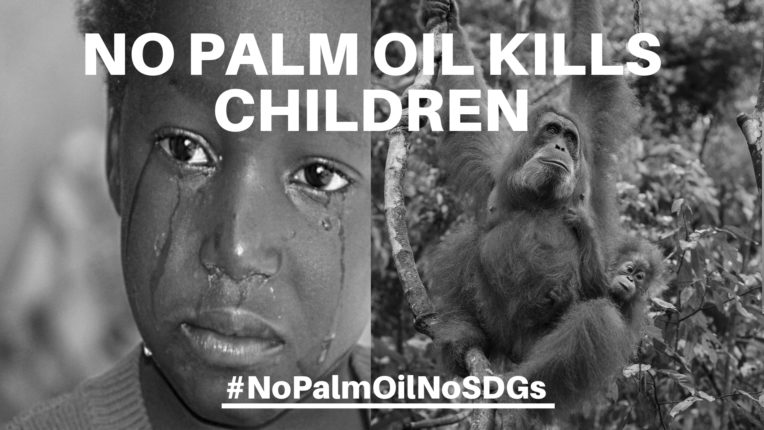
Children First. This is why we promote the use of sustainable palm oil.
New Iceland Foods’ #NoPalmoilChristmas campaign is cynically commercial. Announcing loudly the replacement of palm oil with (less sustainable) vegetable oils is an easy shortcut and populist way to capture new consumers and build customers’ loyalty when the quality of the products on the shelf is low.
This strategy has already been pursued in Italy by food companies and traders such as Barilla and COOP.
Their results have been questionable and irrelevant in terms of halting deforestation:
– meaningless increase in sales;
– considerable technical investments (switching from palm oil to sunflower oil);
– expensive (and discriminatory) communication campaigns;
– very high price of sunflower oil.
Like Iceland Foods, Barilla and COOP were users of palm oil. In 2016 they suddenly (and incoherently) abandoned it, claiming that it is unhealthy and dangerous for the environment. Until 2016, they had argued the exact opposite.
Spanish food producers and retailers are following the Italians and replacing palm oil with populist communication campaigns that play with the emotions of consumers with green-washing slogans.
The “Free From Palm Oil” claim is emotional as we have demonstrated, it misleads consumers and discriminates a healthy ingredient.
This unfair commercial practice has now reached the UK where low quality food traders adopt it to try to gain market shares.
AN INFAMOUS AD
Iceland Foods’ pro-orangutan video was censored. However, it still got what the cynic British supermarket chain was seeking: media attention. Main stream media and anti scientific elite helped promoting it. With this video, they hope to generate emotional reactions and trap more consumers.
FAKE NEWS
Unfortunately, the video fails to provide some important science-based information as usually happens in the commercial war against palm oil.
For example, it does not say that palm oil is the crop with the highest yield per hectare: 3.8 tonnes vs. 0.8 for rapeseed and 0.7 for sunflower. It does not even take into account the conclusions of the FAO’s Global Forest Resource Assessment 2015 which estimate the contribution of oil palm trees to deforestation of around 5% against much higher percentages for intensive farming and the paper industry.
The boycott of palm oil will not save orangutans nor forests, it might cause more deforestation by simply displacing it. Palm oil’s supply chain is the most sustainable. It is the only one that meets stringent sustainability criteria. This is not the case for other vegetable oils – with which palm oil has been substituted.
The relationship between man and environment is built upon a delicate balance. We must take into account the right of millions of farmers to cultivate the land while at the same time preserve flora and fauna. Palm oil is, at this time, the most sustainable cultivation that guarantees this balance. So instead of boycotting it, we have to support palm oil.
POPULISM AGAINST HUMAN BEINGS
Does Iceland Foods prefer orangutans over children? It seems so. Without plantations there would be no schools – and therefore education – which are the best tools to foster the culture of sustainability.
Those who are boycotting palm oil are basically jeopardizing the achievement of the United Nations’ Sustainable Development Goals.
Iceland Foods, with this campaign, is not interested in promoting sustainability, but only its profits.
If Iceland Foods is so keen to save the environment, why doesn’t it boycott intensive farming? It is, after all, the main cause of deforestation.
It is important for OECD countries to fight for more sustainability and help countries of Africa, Asia and South America achieving SDGs.
We are on the side of children and farmers, so we ask you to boycott Iceland Foods’ campaign #NoPalmoilChristmas.
